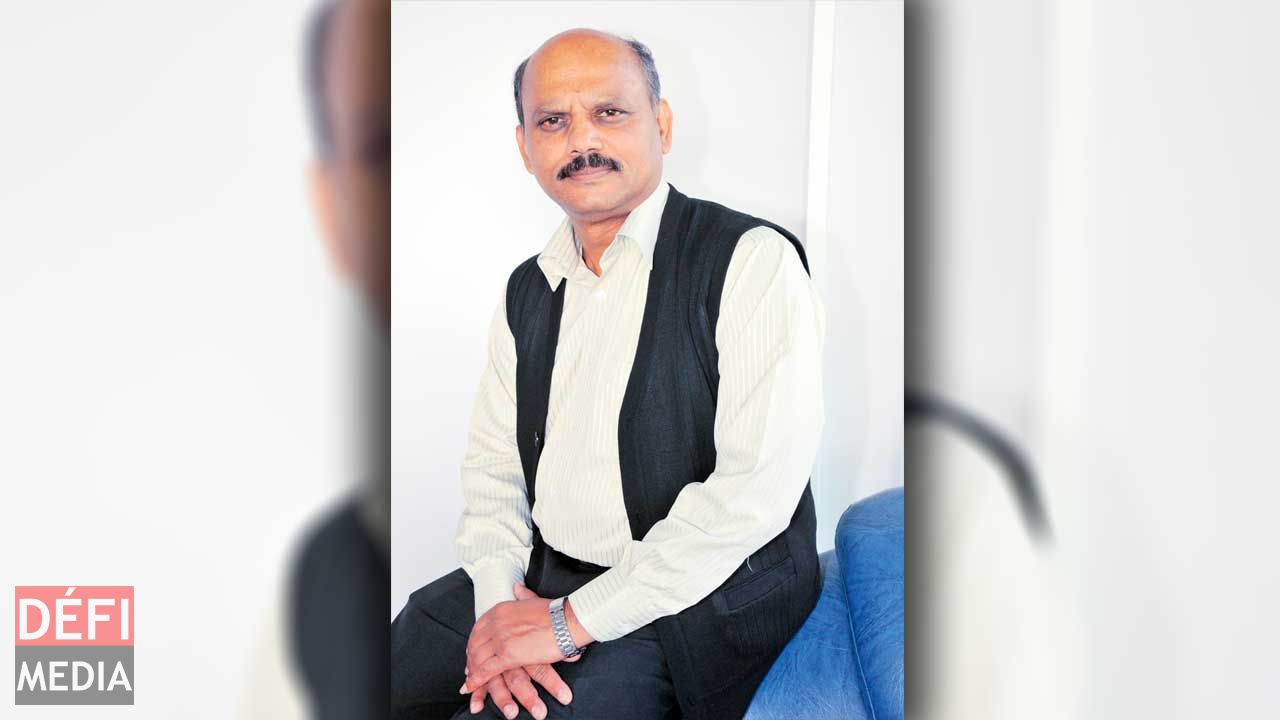
A coalition of trade unions, comprising of the Local Authorities Employees Union (LAEU), Government Services Employees Association (GSEA) and Federation of Parastatal Bodies and Other Unions (FPBOU), organised a peaceful march on Thursday 15 September 2016 to sensitize public opinion on the privatisation of water services. News on Sunday spoke with Radhakrisna Sadien, the secretary general of the GSEA and organiser of the march, to tell us why the private sector should keep its hands off this essential service.
Publicité
The Minister of Public Utilities repeatedly warned of the privatization of domestic water supply and a possible hike in water rates. How does your organisation react to such a project?
Safe drinking water and adequate sanitation are not only essential human rights but are integrally linked to broader efforts for the wellbeing and dignity of all people. The human right to water entitles everyone, without discrimination, to sufficient, safe, acceptable, accessible and affordable water for personal and domestic use – including water for drinking and food production and preparation. In dealing with such an issue, it is of paramount interest for the government to engage in meaningful discussions with all stakeholders before making any amendments to such a right. The way in which this major hike in the water rates was announced constitutes a lack of respect and courtesy towards the population. Those who are in power currently should not forget how and why the previous government met with its downfall. There is no reason why the government should not adhere strictly to its electoral promise as far as participative democracy is concerned. Nobody should be excluded from discussions as this country belongs to all citizens.
Do you have examples?
As at 2010, 75% of water services in France were provided by private firms namely Veolia Water and Suez Environnement. In 2010 when the lease contract expired, water returned under public management. Water Privatisation in England and Wales remains controversial. In 2001, a study by Public Services International Research Unit stated that: Tariffs increased by 46% in real terms while operating profits have more than doubled in eight years and investments were reduced. Public health was jeopardised throughout.
Privatisation in Mauritius have caused marked increases in the price of services, the Post as well as the Sewerage Tax are glaring examples. This debate becomes crucial as the year 2015 was a very important one for the world. Two major agreements were adopted by political leaders: the 2030 Agenda for Sustainable Development and the Paris Global Agreement on Climate Change. How can one ensure the implementation of the United Nation’s Sustainable Development Goals such as ending poverty in all its forms and, ensuring access to water and sanitation for all, when a government decides to leave an essential human right in the hands of the private sector? In short, privatisation is not compatible with the UN’s 2030 Agenda.
“Privatisation has not been successful in countries where it has been enforced. Vulnerable households would not be safeguarded and non payers would be cut off indiscriminately. In most countries, privatisation has encountered strong political opposition."
Why should we not go ahead with privatisation?
The reasons are simple. Water is a human right and without water, there is no life which makes the other SDG’s insignificant. The State is accountable to the population whereas the private sector is to its shareholders only. Water charges will definitely skyrocket at the expense of consumers. Government will address water quality and scarcity issues, as it is also a health issue. It is only the government that can ensure an equitable and sustainable distribution of water resources. It is only the government that can offer a tariff system that does not burden the poor and protect the marginalised.
The need to consider affordability of water and environmental sustainability can only be ensured by the State. Safe drinking water and adequate sanitation can only be achieved through the adoption and implementation by government of Sustainable Development Goal 6. Quality public services can only be delivered by workers whose rights are fully respected. Trade unions want jobs that provide decent wages, social protection and safe working conditions. It is easier for the State to adopt and implement the Decent Work Agenda than the private sector.
What actions will be taken by your association regarding privatisation?
The GSEA, the FPBOU and the LAEU, affiliated to the Public Services International, are launching a campaign against water privatisation which is also the case globally.
We organised a protest march on Spetember 15. In fact, delegates of the three unions as well as some other civil society organisations marched from the Centre Social Marie Reine de la Paix to the Jardin de la Compagnie. We also distributed posters, flyers and stickers to the population in strategic regions to sensitize people on the dangers of the privatisation of water distribution. We want also to denounce the role of the World Bank and the multinationals. But our honourable members should never forget that they are there to serve and protect the population even if this means going against the Washington guys.
Do you think that the problem is elsewhere – like the mismanagement of water resources?
The National Economic and Social Council has, in June 2014, produced a “Report on Management of Public Resources in Mauritius”, following extensive discussions with key stakeholders, including government agencies, the private sector and civil society. One of the main concerns highlighted is that despite abundant rainfall, households are not being supplied with drinking water on a 24/7 basis. The attention was drawn on the fact that “200 million litres of water is lost on a daily basis through leaky pipes”. It found that the current water charge is within the means of an average household except the Wastewater which is higher.
After thorough consultations and deliberations, the NESC considered that the debate whether privatisation of the CWA is suitable or not is not likely to end because of its controversial nature and concluded that there should be a more efficient way of managing the supply and distribution of water. A series of measures were proposed in the said report such as efficient use of water, public awareness campaign, use of water saving devices, promotion of rain water harvesting, special purpose vehicle, and non revenue water, among others.
Among the concerns raised the following consultations: The CWA is being deliberately hobbled and rundown so as to make way for a private sector takeover. Privatisation inevitably leads to loss of jobs. Privatisation has not been successful in countries where it has been enforced. Vulnerable households would not be safeguarded and non payers would be cut off indiscriminately. In most countries, privatisation has encountered strong political opposition.
How far the privatisation of water resources will impact on the image of Mauritius as a welfare state?
Mauritius relies on its human capital and one of the reasons behind its success story being its welfare state. Any dismantling of our social protection system will cause a lot of harm to the country’s image. Targeting is not the solution as it is not an easy task to benchmark and this will create exclusion. The best approach is to introduce a progressive tax system that will act as a safety net for middle class workers before they are impoverished. Allowing privatisation of water resources will give a blank cheque to government to privatise the health services too.

Notre service WhatsApp. Vous êtes témoins d`un événement d`actualité ou d`une scène insolite? Envoyez-nous vos photos ou vidéos sur le 5 259 82 00 !




















![[En images] Marche pacifique du Kolektif 420 pour réclamer la légalisation du cannabis](https://defimedia.info/sites/default/files/styles/square_thumbnail/public/img-20250426-wa0157.jpg?itok=w-XM8k0C)
![[En images] Les funérailles du pape François commencent au Vatican](https://defimedia.info/sites/default/files/styles/square_thumbnail/public/img-20250426-wa0090.jpg?itok=bc4icnyX)
![[En Images] Les funérailles du pape François au Vatican](https://defimedia.info/sites/default/files/styles/square_thumbnail/public/img-20250426-wa0084.jpg?itok=tEIBkZqY)
